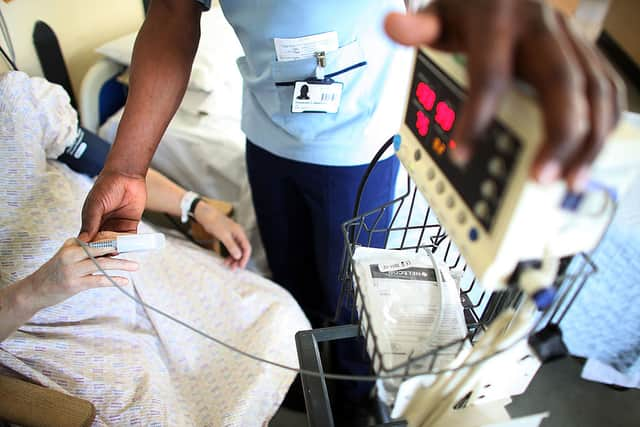Women more likely to die from heart attacks due to sexism in medicine, research reveals
and live on Freeview channel 276
Women are at a greater risk of dying from heart attacks due to sexism in medicine, new research has revealed. The British Heart Foundation (BHF) and the University of Leeds used NHS data from the last two decades to investigate how care for common heart conditions varied by sex and age, discovering that women are less likely to receive life-saving treatment for heart attacks and heart failure.
Researchers found that women are 27% less likely to receive a crucial diagnostic procedure called a coronary angiogram, which can be conducted after the most severe heart attack - a Stemi - and 5% less likely to be prescribed preventative drugs to help combat future heart attacks, such as beta-blockers. Diagnoses for heart failure also taken longer on average for women, the findings revealed, and even once women have been admitted to hospital after suffering severe heart attacks, they are more likely to die there.
Advertisement
Hide AdAdvertisement
Hide AdThe disparity in care has been blamed on pre-conceptions around what patients look like, with doctors believing heart attack victims tend to be overweight, middle-aged men. Women as a result are more likely to be dismissed as having panic attacks, indigestion, or muscle pain.


There is also the issue, the study highlighted, that women - as well as the elderly and people from ethnic minorities - have been “historically under-represented in the seminal trials that have shaped guidelines” for doctors and nurses, which means any less common symptoms they present with can be overlooked. Previous studies have shown that women suffering heart attacks are 50% more likely than men to receive a wrong initial diagnosis.
Dr Sonya Babu-Narayan, associate medical director at the BHF, said the research shows that the “odds are stacked against women” when it comes to cardiovascular care. She added: “Deep-rooted inequalities mean women are underdiagnosed, undertreated, and under-served by today’s healthcare system. It’s time for real action to make heart care more equitable.”
Meanwhile, Professor Chris Gale, professor of cardiovascular medicine at the University of Leeds and consultant cardiologist at Leeds Teaching Hospitals NHS Trust, commented: “We need urgent action to revive heart care. The NHS is full of fantastic people who make truly monumental efforts every day to do the very best for their patients. Despite this, the NHS is creaking at the seams, and we see this played out in cardiovascular care and outcomes. It’s clear that we are not making the most of NHS data, and we are missing vital opportunities for this to inform policy and help target investment.”
Advertisement
Hide AdAdvertisement
Hide AdThe study, published in the journal The Lancet Regional Health, also highlighted how older people are more likely miss out on life-saving treatment for heart attacks - and often struggle to get a diagnosis in the first place.
Currently, around 100,000 people are admitted to hospitals each year with heart attacks - which occur when the supply of blood to the heart is suddenly blocked. The latest statistics from the NHS show that more than 400,000 people are now on waiting lists for heart care - a record high - in a 73% increase since before the pandemic. Researchers from the BHF and University of Leeds also stressed that lengthy waiting lists are leading to heart condition deaths which otherwise could have been “avoidable”.
Comment Guidelines
National World encourages reader discussion on our stories. User feedback, insights and back-and-forth exchanges add a rich layer of context to reporting. Please review our Community Guidelines before commenting.
